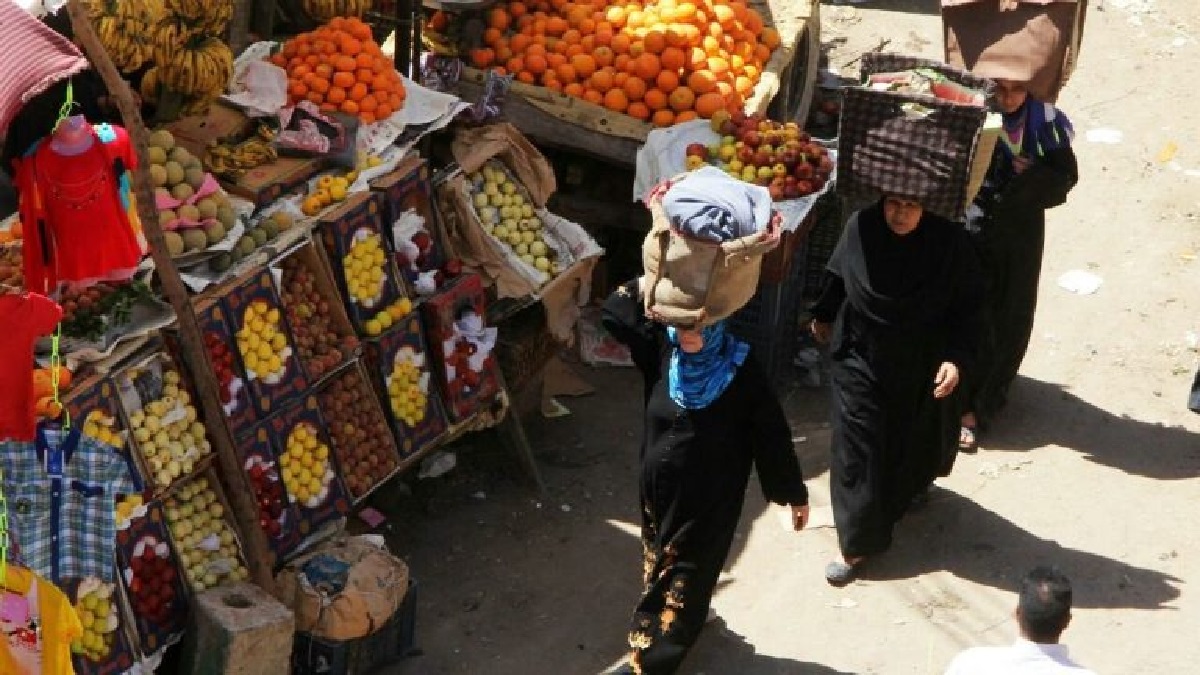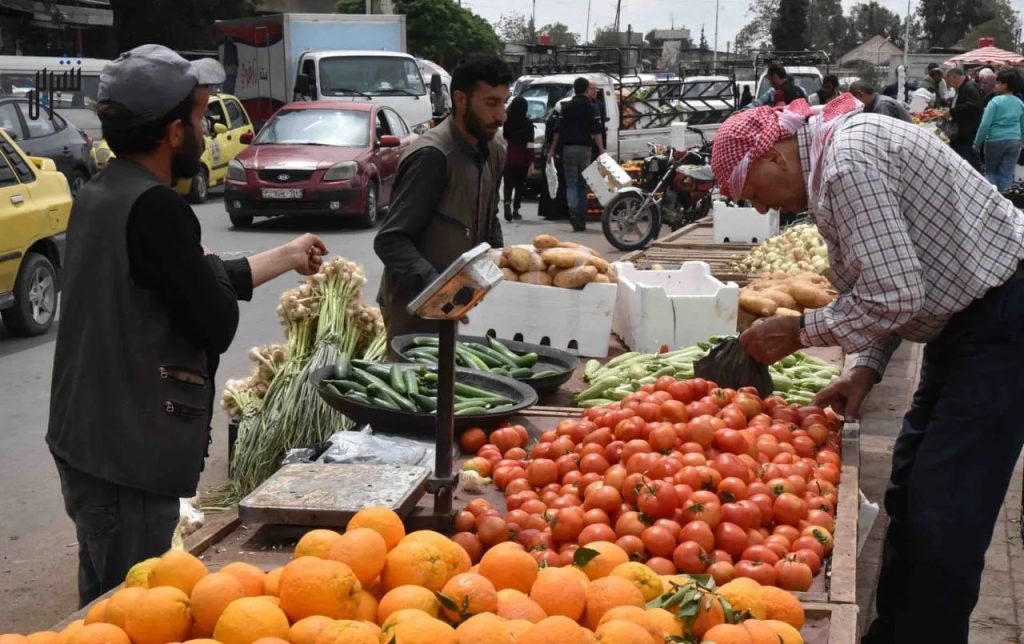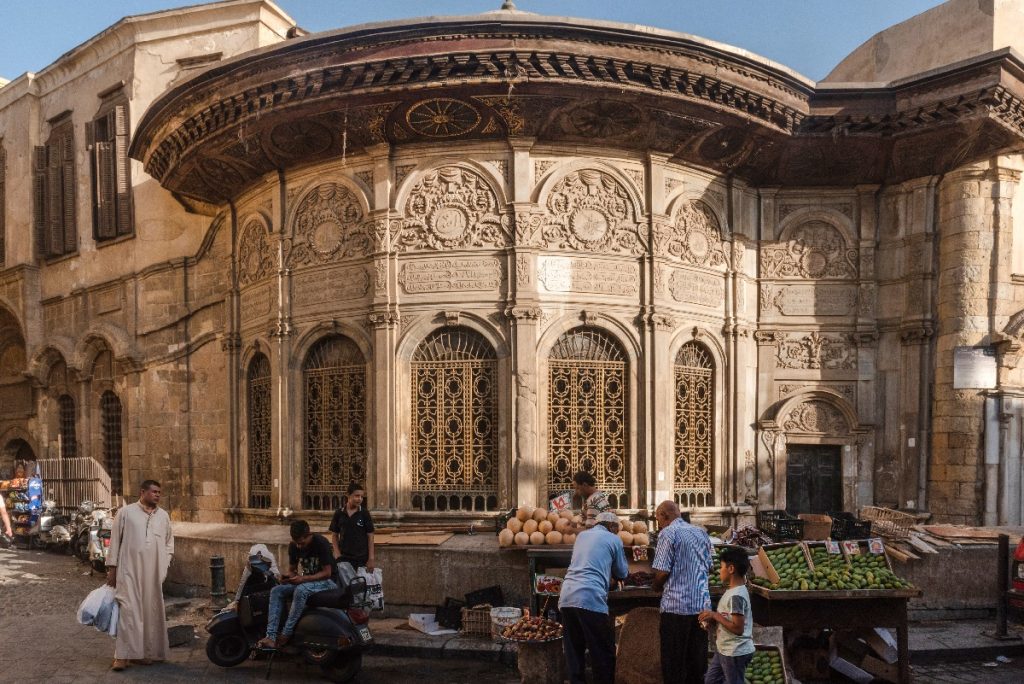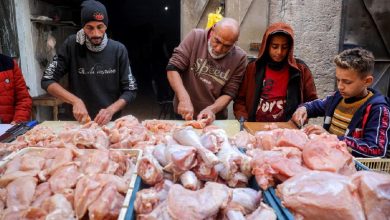Rising Prices of Basic Goods in Egypt: Impact on Consumers and Government Measures
Food, meat, and fruit prices soar as inflation rates climb, prompting the Egyptian government to take action through market reforms.

Watan–The prices of food products in Egypt are gradually rising, sparking concerns among consumers about a sudden increase in inflation rates in the market, despite a decline in demand. This rise is influenced by supply shortages and producers’ intentions to stock products ahead of the peak consumption period during Ramadan, which experiences a 50% annual increase.
Rice prices have surged suddenly in the past two days, increasing by 2,000 EGP per ton. This hike comes mid-season, just weeks before the peak consumption period of Ramadan, causing the price of long-grain rice to rise between 18,000 and 18,500 EGP per ton.
The increase in rice prices has led to an immediate rise in the cost of loose rice, from 30 to 34 EGP per kilo, and packaged rice, from 35 to 37 EGP per kilo (1 USD = 50.5 EGP).
Hazem El-Monofy, a member of the Foodstuff Division at the Chamber of Commerce, explained that the increase in rice prices is tied to the expected rise in demand for rice storage and purchases during Ramadan. There is also a desire among traders to withdraw stocks from farmers and large traders to secure market needs.
El-Monofy noted that the Ministry of Supply is considering importing rice from India to meet the demand and help stabilize prices.
In an attempt to curb exports, the government has imposed a customs fee of 50 USD per ton on the export of local rice. These exports usually go to Arab markets, especially in Libya, Saudi Arabia, Sudan, and Gulf countries.

Cheese and Meat Price Increase For the second consecutive month, several companies have raised the prices of cheese, plain and chocolate-coated biscuits, and ice creams, despite some of their products facing boycotts and the traditionally low demand during the winter season.
The price of chicken has risen by 15% over the past week, increasing from 85 EGP to 103 EGP per kilo of white chicken. Meanwhile, fresh red meat prices have remained high, averaging 450 EGP. Distributors attribute the rise in chicken prices to increased supply costs, influenced by higher prices for gas, electricity, feed, labor, and supply shortages. Large production companies are also extending production cycles to align with the peak demand season in Ramadan, hoping to sell fresh and frozen meat at better prices.
In the vegetable markets, garlic prices have continued to rise, reaching 90 EGP per kilo, while onion prices have decreased from 30 to 25 EGP due to increased supply. Lemon prices have risen from 65 to 80 EGP, driven by supply shortages caused by reduced production in key farming regions and increased demand, as lemons are used as a natural remedy for cold and flu during winter.
Decline in Fruit Supply The availability of imported fruits has significantly decreased in major markets like “Al-Tawfiqiya” in central Cairo, and the main wholesale markets in Obour City (east of Cairo) and 6th of October City (west of the capital). This is due to a sharp rise in product prices, related to the depreciation of the Egyptian pound against the dollar, higher customs duties on imported goods, and difficulties in obtaining dollars through official channels for import financing.
An experienced distributor at the Al-Tawfiqiya market mentioned that importing fruit has become increasingly difficult due to customs procedures, leading to substantial losses for importers due to high rates of spoilage and fines imposed on goods, in addition to record-high air shipping costs reaching 1 USD per kilogram. Most of the imported fruit available in markets comes from unused supplies in hotels and tourism establishments.
Imported apple prices remain stable at 120 EGP for green apples and 90 EGP for yellow and red varieties. Some fruits are expected to maintain the high prices seen at the beginning of the winter season, such as oranges and mandarins at 25 EGP per kilo, and bananas at 30 EGP, according to traders.

Government Measures To address rising prices, the government has expanded the “one-day markets” that have recently been established on the outskirts of densely populated neighborhoods, catering to both middle and low-income groups in major cities. These markets offer essential goods at wholesale prices to help reduce consumer costs.
The Ministry of Local Development, leading the project in collaboration with the Ministries of Supply, Interior, and Commercial Chambers, confirmed that these one-day markets have helped reduce prices by 30% compared to retail stores.
The increase in the prices of essential goods is the primary driver of inflation, which has remained at high levels for the fourth consecutive year, showing a 35% increase by the end of 2023 and 2024. Price hikes in December included food and beverages (19.2%), clothing (23.6%), electricity, gas, and fuel (22.5%), and healthcare (35%).






